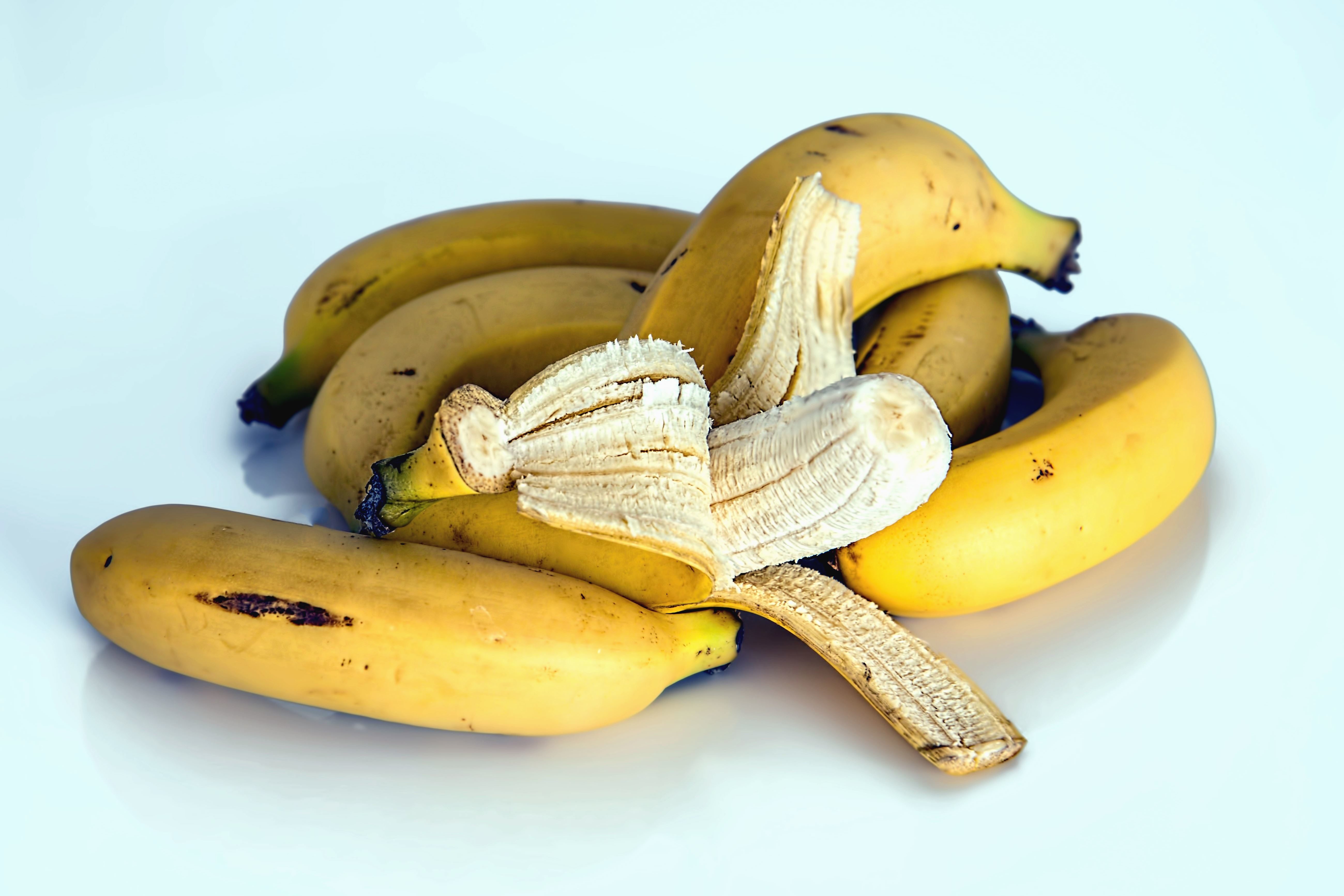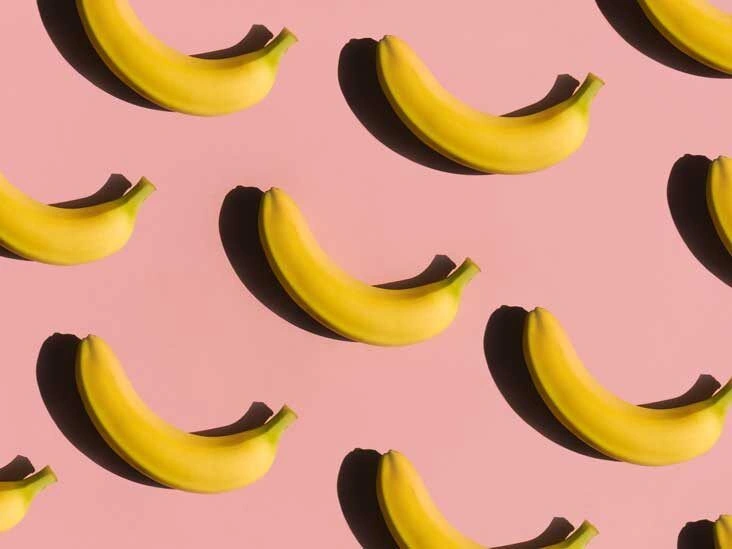Bananas provide fiber, potassium, vitamin B6, vitamin C, and various antioxidants and phytonutrients. Potential advantages include supporting heart health and aiding digestive function.
Bananas belong to the Musa family of plants native to Southeast Asia and are cultivated across many warm regions worldwide.
They come in numerous varieties and sizes. Color varies from green to yellow, and some cultivars are even red.
Continue reading to explore banana nutrition details and their possible health effects.

Banana nutrition facts
Nutrition information for one medium banana (about 118 grams):
- 105 calories
- 88.4 g water
- 1.29 g protein
- 26.9 g carbohydrates
- 14.4 g sugars
- 3.07 g fiber
- 0.39 g fat
Carbohydrates
Bananas are a substantial source of carbohydrates, which exist primarily as starch in unripe fruit and as sugars when ripe.
The carbohydrate profile of bananas shifts considerably as they ripen.
Unripe bananas are dominated by starch. Green bananas contain roughly 70% starch on a dry-weight basis. This proportion declines during ripening.
The principal sugars in ripe bananas are sucrose, fructose, and glucose.
Bananas have a relatively low glycemic index (GI), typically between 42 and 51 depending on ripeness. GI indicates how quickly a food’s carbohydrates enter the bloodstream and raise blood sugar.
Fiber
A large share of the starch in green bananas is resistant starch, which resists digestion in the small intestine.
In the large intestine, this starch is fermented by microbes into butyrate, a short-chain fatty acid that appears to benefit intestinal health.
Bananas also supply other fibers such as pectin. Some banana pectin is water-soluble.
As bananas ripen, the amount of water-soluble pectin rises, contributing to the fruit’s softening with age.
Both pectin and resistant starch help blunt post-meal blood sugar spikes.
Vitamins and minerals in bananas
Bananas are a source of several vitamins and minerals.
- Potassium: Bananas provide potassium. Diets rich in potassium can help lower blood pressure in individuals with hypertension and support cardiovascular health.
- Vitamin B6: Bananas are a notable source of vitamin B6. A medium banana supplies a meaningful amount of this vitamin.
- Vitamin C: Like many fruits, bananas offer vitamin C. One medium banana contains about 10.3 mg of vitamin C.
Health benefits of bananas
Bananas may offer several health advantages.
Heart health
Bananas are rich in potassium, a mineral that supports heart function and helps maintain normal blood pressure.
One medium banana contains a significant amount of potassium.
»Learn more:Heart-Healthy FoodsDigestive health
Unripe, green bananas contain substantial amounts of resistant starch and pectin, both forms of dietary fiber.
Resistant starch and pectins function as prebiotic substrates, nourishing beneficial gut bacteria.
In the colon, these fibers are fermented by advantageous microbes to produce butyrate, a short-chain fatty acid that supports intestinal well-being.
Possible risks of bananas
Opinions vary on whether bananas are advisable for people with type 2 diabetes.
Bananas contain starch and sugars, so one might expect them to cause a substantial blood sugar rise.
However, owing to their low GI, moderate banana intake is unlikely to raise blood sugar as dramatically as some other high-carbohydrate foods.
Nevertheless, people with diabetes should be cautious about consuming large amounts of very ripe bananas. Monitoring blood glucose closely after eating high-sugar or high-carb foods is advisable.
Some assert that bananas can lead to constipation. In fact, because bananas are rich in soluble fiber, they may actually alleviate constipation.
Allergic reactions to bananas are also possible. Seek urgent medical care if you experience symptoms such as:
- hives or an itchy skin rash
- an itchy mouth or throat
- angioedema, meaning skin swelling
The bottom line
Bananas are a favorable source of carbohydrates and fiber and contain reasonable amounts of several vitamins, minerals, and antioxidants. Potassium, vitamin C, catechins, and resistant starch are among their beneficial nutrients.
They may confer a variety of benefits, including support for cardiovascular and digestive health.
Whether bananas are appropriate for people with diabetes remains uncertain. Consult a physician or registered dietitian for personalized guidance if you have diabetes or concerns about adding bananas to your diet.

























Leave a Reply
You must be logged in to post a comment.